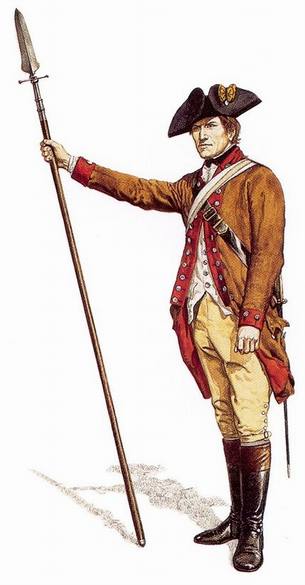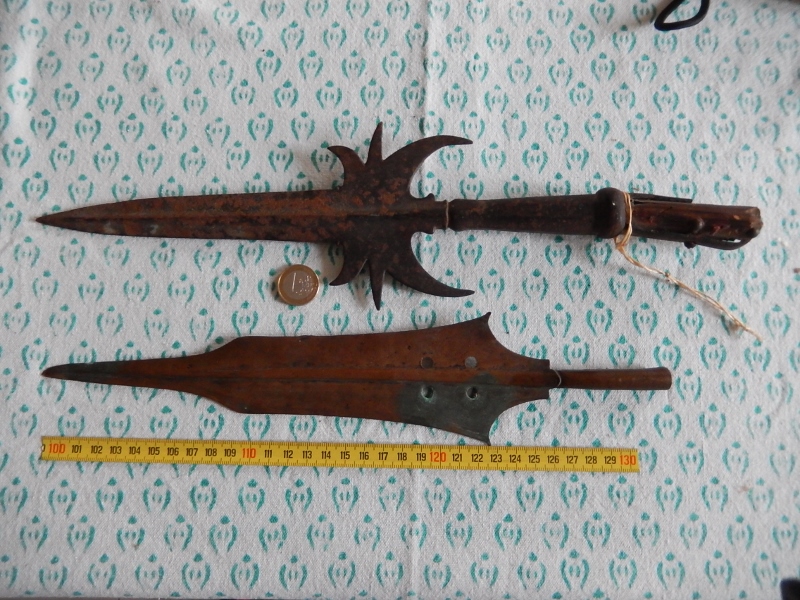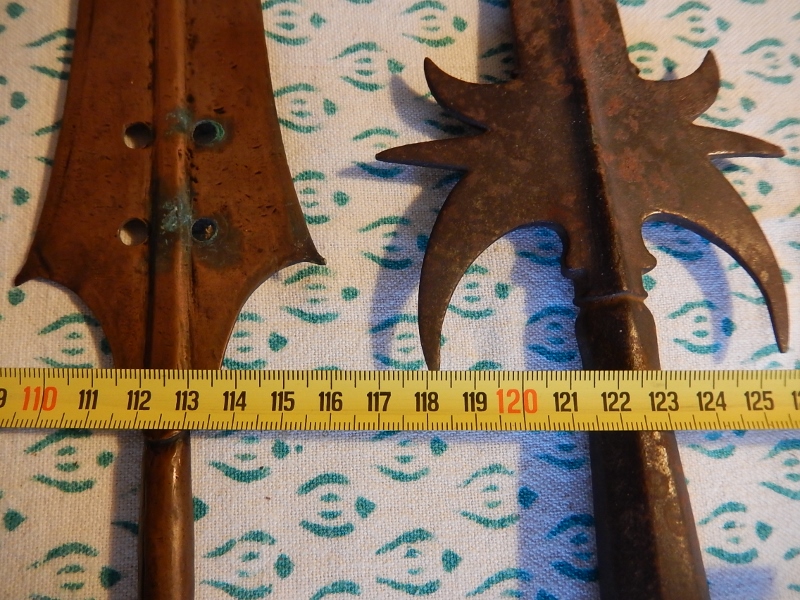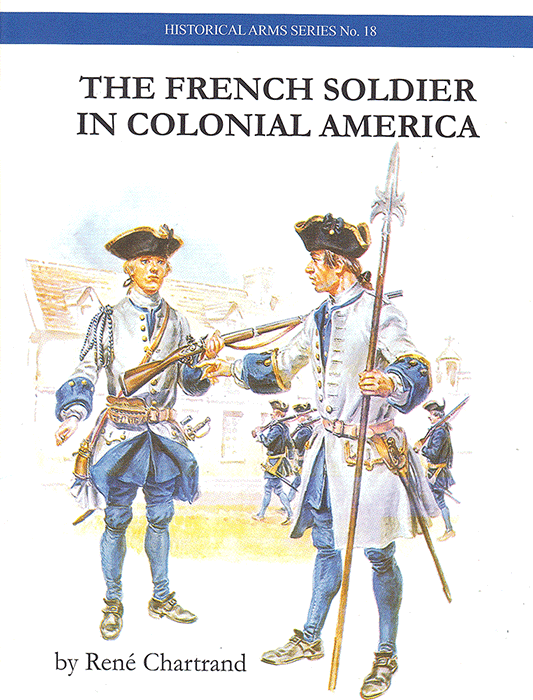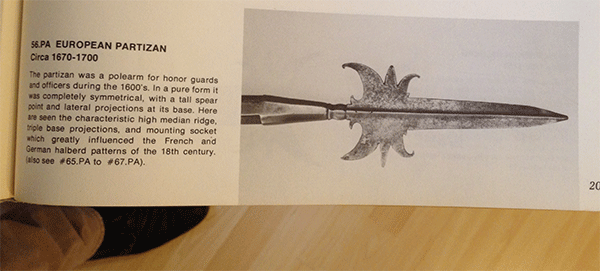Posts: 5,981 Location: Birmingham, Alabama
Mon 05 Dec, 2016 9:00 am
Sounds like the copper head could be a souvenir of somebody's service in the Belgian Congo.
As for dating--what I'm seeing on this type (including that 1688 French wreck) suggests late 17th or early 18th c.
The cross-bar type (see below) seems to be common by mid-18th c., but I don't know if that's true for all of Europe.
It seems reasonable to date yours 1650-1750, with the sweet spot in the last quarter of the 17th c.
As for value--this one seems in line with a couple of others I saw in European sales:
http://74.116.1.137/store/item/1680-1780-anti...07165.html
You probably can get a much better idea of values by browsing the catalogs of the various dealers noted on the links page here:
http://myArmoury.com/links.html
Hermann Historica often has things like this.
 Attachment: 22.87 KB
Attachment: 22.87 KB
